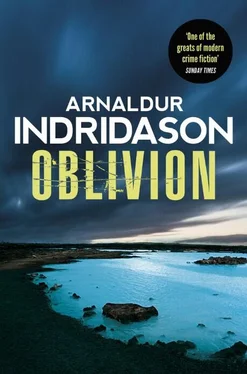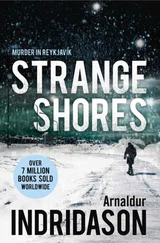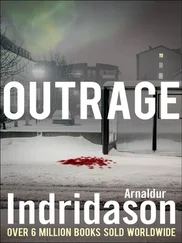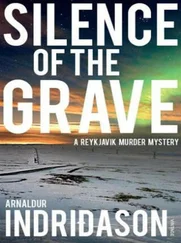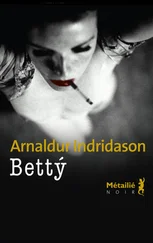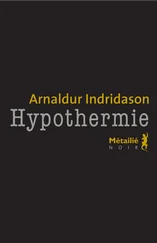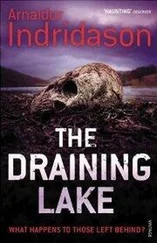Two hours later they were back where they had started.
‘Too bad you didn’t get anywhere,’ said Caroline, shaking their hands in parting. ‘If there’s nothing else, I have to get going.’
‘Thanks very much,’ said Marion.
‘By the way,’ said Erlendur, ‘have you by any chance heard of an airline called Northern Cargo Transport or NCT?’
He approved of Caroline’s methods; the way she had observed, quietly and unobtrusively, only stepping in when necessary, and then firmly, without throwing her weight around. He’d had his doubts about her at first, but now regretted this and felt she could be trusted. Far from being obstructive, as he had feared, she had been useful, and he wanted to know if they could trespass on her helpfulness a little further.
‘Northern Cargo Transport?’ she said. ‘I don’t think so. What company’s that?’
‘We don’t know,’ said Erlendur. ‘We were told they have some connection to the air force. And we believe they’re American.’
‘What sort of connection?’
‘That’s what we’d like to know,’ said Marion. ‘They operate Hercules transports which stop over here, and Kristvin, who was a mechanic, serviced one of them.’
‘What do you want — you’re not asking me to spy on some airline for you?’ asked Caroline, smiling.
‘We need information about this company,’ said Erlendur. ‘But it’ll probably take us forever if we go through the official channels with all the applications and paperwork and delays. If you... I wouldn’t call it spying exactly... but if you could speed things up...’
‘I... Sorry, but I think you’ll just have to go down the regular, time-consuming route,’ said Caroline. ‘I wouldn’t even know where to start.’
‘All right,’ said Erlendur. ‘It doesn’t matter. We just thought you might be able to check for us, but we understand your position. Thanks again for your help.’
‘You’re welcome,’ said Caroline. ‘It was nice meeting you. I haven’t met many Icelandics — you’re the first, to tell the truth. Sorry I can’t be of any further assistance.’
She was on her way back to her vehicle when Erlendur remembered something that had occurred to him as they were interviewing the residents.
‘Just one more thing,’ he called. ‘Has anything out of the ordinary happened on the base recently?’
Caroline turned back. ‘Out of the ordinary? Like what?’
‘I don’t know,’ said Erlendur. ‘An accident? Any deaths?’
‘No, I don’t believe so.’
‘Have you had problems with any known troublemakers?’
‘No.’
‘All right. Thank you again.’
She had told Erlendur, when he rang to explain what he wanted, that she would rather they met at a cafe than at her home, and she was already there when he finally arrived, a little late, after being held up at work. They exchanged greetings and he apologised, explaining that things were very busy right now. It was true. The state prosecutor’s office and police commissioner had issued a letter rogatory for permission to carry out an examination of Hangar 885, Kristvin’s last known place of work. The letter had also contained a request to interview members of the Defense Force in cooperation with the military authorities. The request had been submitted and re-submitted, but no response had as yet been received from Fleet Air Command. Marion thought their lack of enthusiasm might be related to the fact that the hangar housed not only fighter jets and Hercules transports but also powerful AWACS spy planes, early-warning aircraft involved in the surveillance of Icelandic airspace. Presumably the authorities were reluctant to let the Icelandic police, forensics team and photographer loose on the premises. The matter CID had spent so long debating — and the reason for Erlendur’s late arrival — was whether to apply to the Icelandic Ministry of Foreign Affairs to put pressure on the base command.
The woman responded coolly when Erlendur said he had not meant to keep her waiting, but asked no questions. She knew he was a detective but was meeting her today in an unofficial capacity; his interest in Dagbjört’s case was a private affair. They ordered coffee. He was hungry, having eaten next to nothing all day, so he bought a sandwich and asked if she would like something. She thought for a moment, then accepted a slice of cake. Apart from that she sat and smoked in silence. Her name was Silja and she was forty-four years old, the same age as her friend Dagbjört would have been. Erlendur found himself inadvertently tracing the signs of ageing, the lines etched deeper into her face, the harder expression round her mouth, and tried to picture how Dagbjört might have looked today. He had seen the grainy black-and-white photo printed in the papers at the time of her disappearance, which had been taken a couple of years earlier, when she was sixteen. When he met her aunt, Svava, she had lent him a copy of the same photo, which was much clearer than the published version. As he studied the picture of Dagbjört, who beamed at him, eternally young, through the grey mists of time, he had experienced an odd sensation in his chest and his thoughts had slipped back to his brother who had been lost on the moors of their childhood home in the east. He found himself wondering how Bergur would have aged and whether he would have been able to recognise him as an adult. Bergur had been only eight years old when he disappeared in a blizzard and was never found. The incident had set an indelible mark on Erlendur’s soul. He had been out there with Bergur but lost hold of his hand, and later had been rescued, more dead than alive, from a snowdrift. Ever since then he had been wrestling with the question of why Bergur should have suffered such a cruel fate while he himself was spared. But he had never found any answers or discovered what had become of his brother.
‘Strange business about that man they found at Svartsengi,’ Silja remarked as they waited for their order. ‘Are you on that case, by any chance?’
‘I’m part of the inquiry, yes.’
‘Do you know what happened yet? Or who he was?’
‘I’m afraid I can’t comment,’ Erlendur replied. ‘The matter’s under investigation.’
‘But it was murder, wasn’t it? That’s what I read in the papers.’
‘As I said—’
‘You can’t comment.’
‘No, sorry.’
‘I know I already asked you on the phone but why are you reopening Dagbjört’s case now? You said there was no new evidence and it sounds like you have enough on your plate already.’
‘No, there’s no new evidence,’ said Erlendur. ‘But her father died the other day and—’
‘Yes, I saw. I read the obituaries.’
‘I spoke to his sister, and we agreed that I should make one final effort to get to the bottom of what happened to Dagbjört. Time’s passing and there are fewer and fewer people left who remember.’
‘Fewer left who remember,’ repeated Silja, as if the words held a peculiar significance for her. ‘Two other girls from our class are gone now, as well as Dagbjört,’ she explained after a brief pause. ‘And it wasn’t that big a class.’
‘Your testimony was pretty significant,’ said Erlendur. ‘No one else knew Dagbjört had a boyfriend, let alone that he lived in Camp Knox.’
Silja had not touched the cake but sipped her coffee and lit another cigarette. She smoked each one only halfway down before stubbing it out.
‘I often think of her,’ she said. ‘We were... we were born only three weeks apart and we... were so alike, shared the same interests, used to spend a lot of time together. Listened to Doris Day. Giggled about boys. One day she told me she was interested in a boy who lived near her and who she sometimes saw on her way to school, in Camp Knox. They’d met up a couple of times without telling anyone, and she thought she was falling for him.’
Читать дальше
